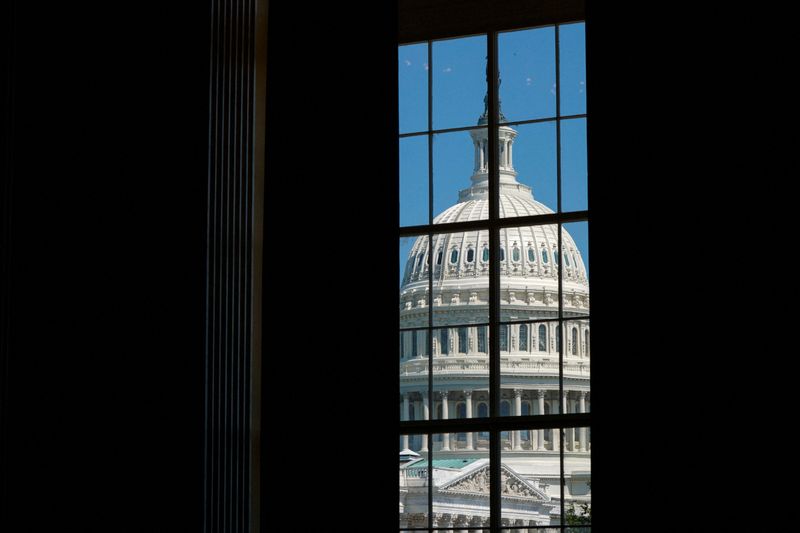By Rose Horowitch and David Morgan
WASHINGTON (Reuters) - A U.S. Senate panel on Wednesday took up proposals to reform federal election law, aiming to avoid a repeat of the violence of Jan. 6, 2021, when Donald Trump supporters stormed the Capitol in an effort to overturn his election defeat.
The Senate Rules Committee is reviewing two legislative proposals to craft a bill to reform the 1887 Electoral Count Act, which the former president and his allies sought to use to overturn his 2020 election loss to President Joe Biden.
"It's our job to make sure this never happens again, no matter who's in charge," Democratic Senator Amy Klobuchar, the committee's chair, said at a hearing.
Trump supporters stormed the Capitol in a failed effort to pressure then-Vice President Mike Pence to stop Congress from certifying the results.
A bipartisan group of senators led by Democrat Joe Manchin and Republican Susan Collins proposed legislation last month that would among other things, clarify that the vice president plays only a ceremonial role during certification of presidential election results.
Similar legislation has been put forward by Klobuchar, Democratic Senator Richard Durbin and independent Senator Angus King. House of Representatives Democrats are also pursuing legislation.
Calling the Electoral Count Act "archaic and ambiguous," Collins said lawmakers from both parties have abused weaknesses in the law by raising frivolous objections in four of the last six presidential elections.
"It took the violent breach of the Capitol on Jan. 6 to really shine a spotlight on how urgent the need for reform was," said Collins, one of seven Senate Republicans to vote to convict Trump on a charge of inciting insurrection at his subsequent impeachment trial.
"Nothing is more essential to the survival of a democracy than the orderly transfer of power. And there is nothing more essential to the orderly transfer of power than clear rules for effecting it," she added.
Lawmakers hope to pass reforms this year, while the House and Senate are under Democratic control.

The legislation that emerges from the committee is expected to make it harder for members of Congress to raise objections to election results by requiring a vote by as much as 20% of the House and Senate. Current law allows objections with support from only one lawmaker from each chamber.
Such legislation would also tighten the procedure for handling slates of electors and specify a path for challenging election results in court.